Game of Thrones is finally over. The hit HBO original series was quite the cultural phenomenon, spanning over eight seasons and consisting of intense action and drama.
With the recent rumors of George R.R. Martin working with a Japanese development studio on a new project, we could be expecting to see a game that harnesses the creativity of Martin’s storytelling in a new and exciting world.
This also marks the first time Martin is working within a new medium, so we can’t wait to see what he has in store for us.
The problem is, we probably won’t be seeing that game release any time soon. Maybe you’re looking to play a game that will give you the same vibes and themes that only a show like Game of Thrones can provide.
These games may not be Game of Thrones, but I’m certain that they will scratch that itch.
Drakengard 3
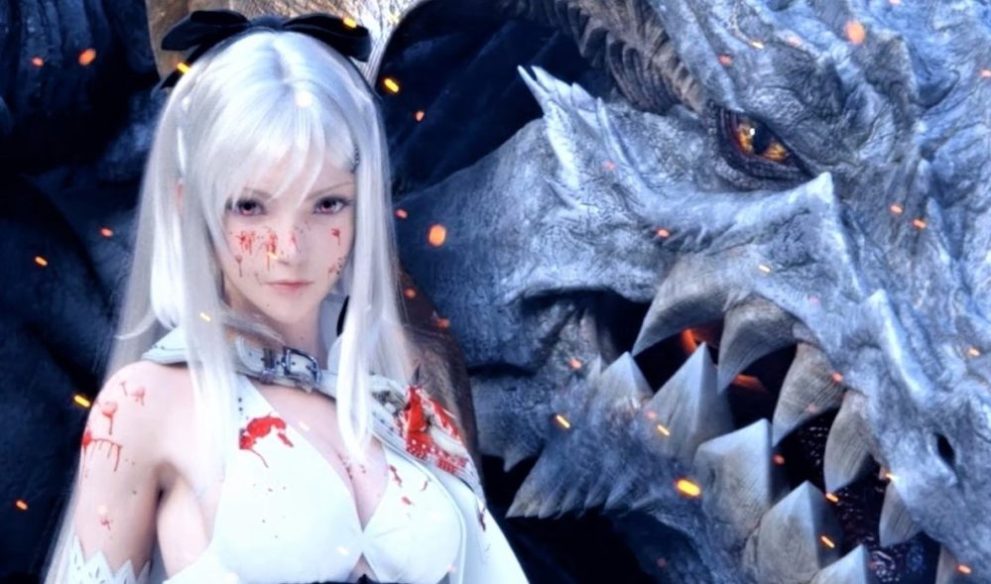
Drakengard 3 is kind of a strange title. Released at the end of the PS3’s life cycle, it is commonly overlooked as most people at the time were ushering in a new generation of consoles.
It’s really a shame too because it’s a game that does a lot of interesting things within the framework of a unique story with many twists.
Created by Yoko Taro (well known for creating cult classics such as NieR and NieR: Automata), he has a very special gift of weaving a story that ends up being unpredictable and memorable.
Drakengard 3 is technically a prequel to Drakengard 1, and also subsequently NieR and NieR: Automata. They all take place within the same universe.
In this game, you take control of a woman named Zero (who kind of reminds me of Daenerys Targaryen). Partnering with a childish sounding dragon named Mikhail, Zero is on a mission to kill her five sisters who rule the world’s various regions.
While this sounds a bit sadistic, playing through the game reveals many truths and reasons behind Zero’s rampage, similar to how a season of Game of Thrones can play out with details slowly unfolding before the viewer’s eyes.
It’s very easy to start understanding her motives about halfway through the game and it’s at this point when the game really reels you in.
Unfortunately, if there’s one thing holding this game back from being perfect, it’s rough gameplay performance.
The game can sometimes drop to single digits in highly congested areas and when your dragon Mikhail is breathing fire everywhere. There also is some screen tearing that can rear its ugly head during gameplay.
However, if you can look past these issues you will experience a game that is truly unique than anything else on the market.
Regardless of the bad performance, I still had a lot of fun upgrading Zero and dispatching foes with the unique weapon-switching combat system the game has to offer.
It may not be the deepest RPG and/or action game out there, but the charm and uniqueness of the story is what you’re here for. Also what other game lets you ride a dragon like Daenerys and rain fire down upon your enemies?
Middle-Earth: Shadow of Mordor
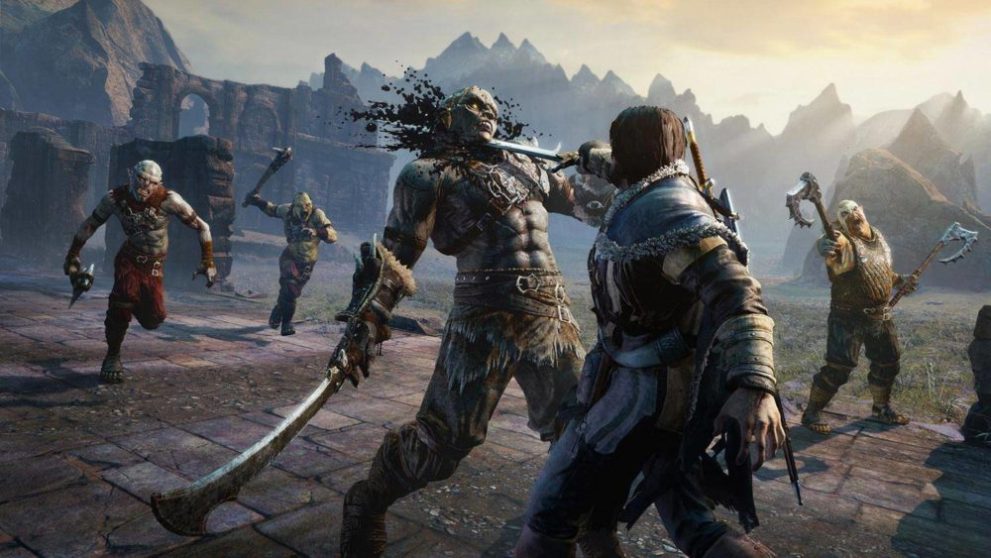
Lord of the Rings and Game of Thrones are two entities which are commonly compared and for good reason. Both feature a medieval world where fantasy elements are plentiful and classic tropes of good versus evil are a large part of both’s DNA.
In Middle-Earth: Shadow of Mordor you play as a ranger named Talion, looking for revenge after his wife and son are murdered by Sauron’s forces.
During the game you will explore the many lands of its expansive world in your search for the monsters responsible for the death of your family.
One of the most lauded aspects of the game at the time was its combat system, which allows players to pull off some very cool combos and brutal finishing attacks.
As far as unique aspects go and one that reminds me of Game of Thrones the most, is the game’s “Nemesis System.”
This system tracks and records all the “Uruk” (nasty orcs, who end up being the main antagonists of the game) that you may come in contact with throughout the game.
If you happen to die by the hand of a particular Uruk or if they happen to survive an attack by you, they will be added to a database. These Uruks will then be promoted as captains.
Fighting and defeating these captains will weaken Sauron’s army and grant you runes which you can use to upgrade and buff the various weapons at Talion’s disposal.
This was a unique mechanic at the time because it forces you to prioritize certain captains and strategically plan your next attack.
Dark Souls
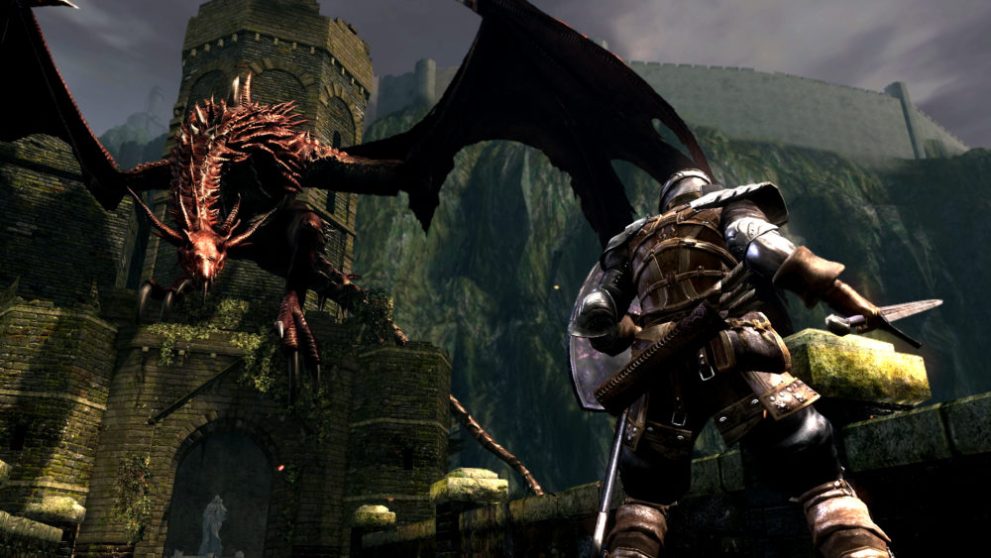
Dark Souls is mainly a game about exploration. It’s also an extremely punishing game with mechanics that initially feel cheap and not fully fleshed out. It demands thoughtfulness in your approach and an ability to learn from your mistakes.
However, when you do come to terms with how the game wants you play and experience its world, it becomes nothing short of a masterpiece.
On paper, the similarities between Dark Souls and Game of Thrones are quite plentiful.
Things such as the presence of dragons, undead foes to dispatch, mysterious NPCs that will confuse and surprise you, and the focus on knights and medieval mythology all make up a thrilling yet somber experience.
The game also has a boss called the Great Grey Wolf Sif (a giant wolf found in the Darkroot Garden) which reminds me a lot of Ghost the direwolf from Game of Thrones.
What makes Dark Souls stand out from its contemporaries, however, is its emphasis on discovery. In Dark Souls you don’t have a map to refer to and the game doesn’t explicitly say where you need to go.
This can be very troubling at the beginning when you aren’t sure what the game is asking of you and when it’s punishing you left and right during its combat.
Dark Souls also doesn’t really let on as to what’s happening within its world. In order to fully understand what’s happening, many will have to look elsewhere, such as online forums in order to piece together snippets of information that all add to the lore of this universe.
Like Game of Thrones, players dedicated to learning all the intricacies of the story will find much to love in Dark Souls as its world is as equally fascinating as it is terrifying.
The Witcher 3: Wild Hunt
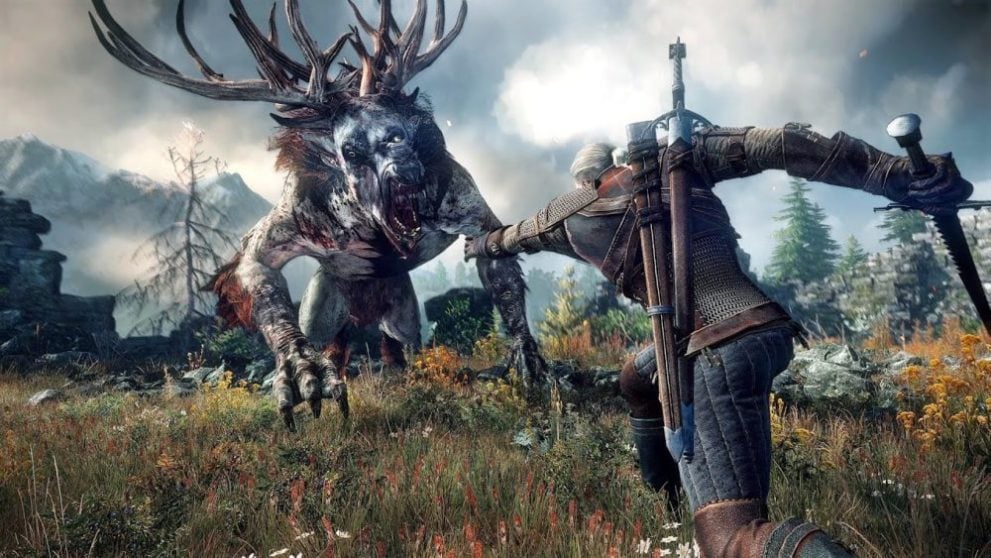
In Game of Thrones, power, kingdoms, and violence are central themes which permeate throughout its eight seasons. The Witcher 3: Wild Hunt also shares these themes as you take control of Geralt of Rivia, a monster hunter referred to as a Witcher.
Geralt is very similar to Jon Snow in that he’s a hero in every sense of the word and he’s willing to take on the difficult tasks ahead of him, no matter the cost.
Early in the game, he gets reunited with his lover and a sorcerer named Yennefer. She tells him that an Emperor by the name of Emhyr has summoned him and upon visiting him, Emhyr tasks Geralt with finding Ciri.
Ciri is a Child of the Elder Blood, the daughter of the emperor, and is the last heir to an ancient elfish bloodline that can manipulate space and time.
This leads Geralt into a long string of events in which he discovers himself while also saving others.
What sets The Witcher 3: Wild Hunt apart from a game such as Dark Souls, is its focus on direct, narrative storytelling. The game features a dialogue wheel in which players can make decisions about how Geralt will interact with people he encounters along his journey.
These choices will and can affect events that happen within its game world and this level of choice and immersion was a fantastic example of player freedom during its release.
What really makes The Witcher 3: Wild Hunt feel like Game of Thrones is how it’s world is constructed and interconnected with many kingdoms and areas to explore.
As Geralt, your actions and movements always matter and like Game of Thrones, any wrong move can mean death and/or despair.
Game of Thrones: A Telltale Game Series
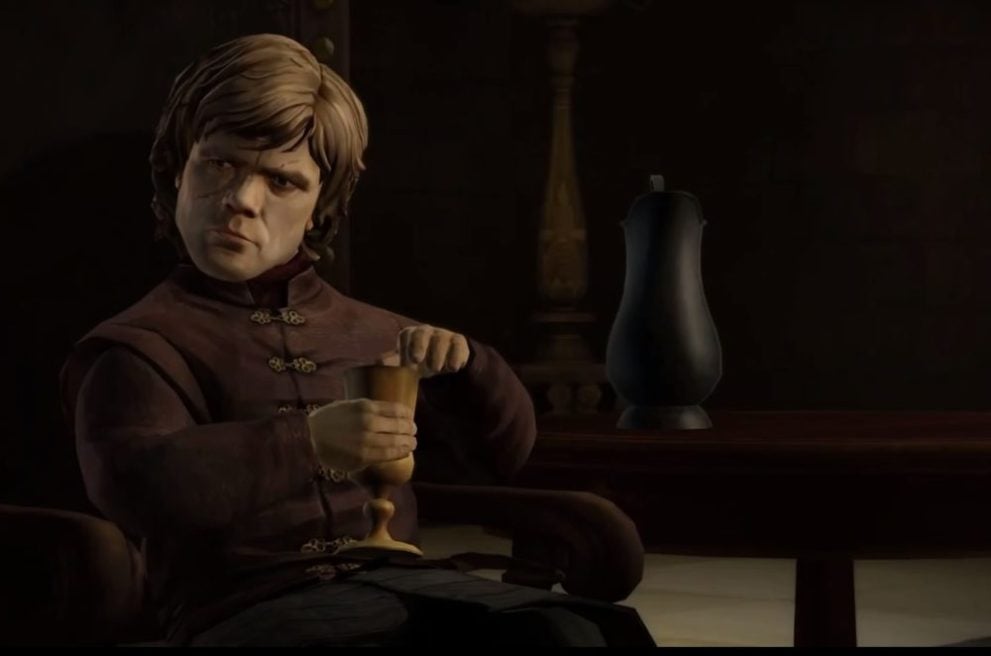
Now it wouldn’t be a Game of Thrones list without including at least one Game of Thrones game. That game is Telltale’s Game of Thrones released in 2014.
There have been a few other Game of Thrones titles released over the years, but this one captures the essence of the series the most.
Like all Telltale games, Game of Thrones features a dialogue choice system which affects many events that happen and unfold as you continue playing.
It was released in an episodic format like all Telltale games, with episodes rolling out every couple months or so. This made it so fans of the TV show could feel like they are digesting each episode separately, reflecting on each before the next one dropped.
The game takes place during the events of the show and somewhere between the end of the third season and just prior to the beginning of the fifth season.
The story focuses on House Forrester, a family not yet introduced in the TV series but briefly mentioned in the fifth book, A Dance With Dragons.
Throughout the game, you will control five family members of House Forrester, as each of their choices will affect one another and the fate of their house entirely.
What was cool about this entry in the Game of Thrones universe was how the game tracked the decisions you made compared to what the rest of players decided.
There was also an additive “rewind” feature which allowed players to go back and choose other paths within the structure of its story.
Watchers of the show looking to experience an alternate storyline within the Game of Thrones universe should look no further than to play Telltale’s Game of Thrones.

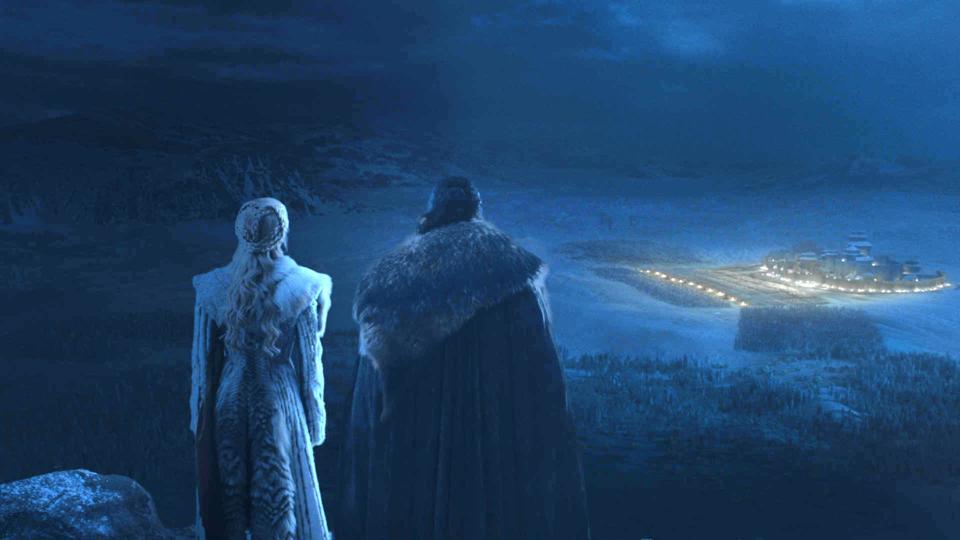











Updated: May 23, 2019 09:30 am